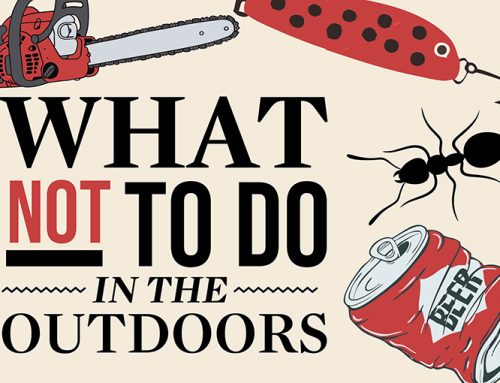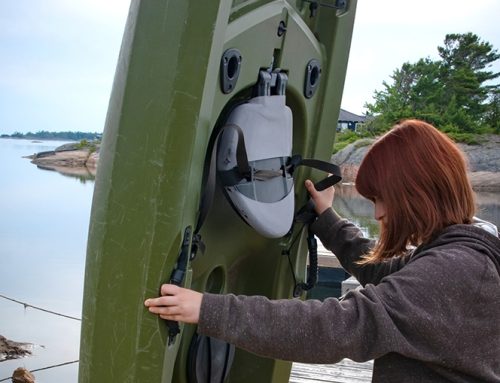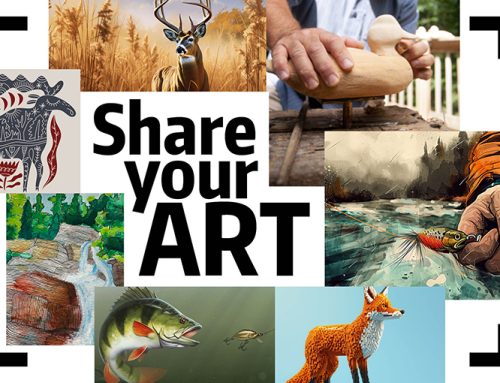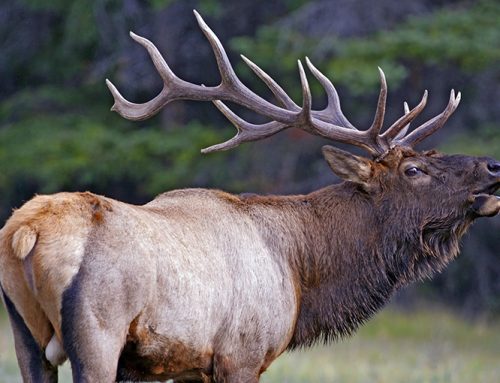
My hands trembled imperceptibly. My heartbeat sounded something like a ruffed grouse drumming on a distant log. My knees were more than a little shaky, too. I am always like that after the shot.
Minutes earlier, my prey, a white-tailed deer, ran off with an arrow buried deep in its chest. The broadhead and a few inches of shaft protruded out the far side of the animal.
The bloodletting was immediate. The flow was heavy. The hit was clearly lethal. I watched as the majestic animal slowed to a hesitant walk, then stumbled, faltered, and collapsed.
It kicked at the sky once, as if to find purchase for its cloven hooves in the heavens. Then it thrashed a little and extended its right hind leg stiffly. And somewhere between that motion and the faint croaking of a raven, the life force that animated that creature became part of the primordial forest once again.
Moment of reverance
The woods went silent. And so did I.
I wanted to cheer but I couldn’t. I wanted to smile but knew now was not the time. And though I had every right to pump my fist in celebration, I did not.
Instead, I merely processed what had happened and fixed my eyes on the dead animal about 40 yards away. Then, I mumbled thanks that the kill was clean and the animal’s suffering had been minimal.
Once again, I was struck by the solemnity of the moment.
An absolute act
Taking an animal’s life is no small thing.
It is an act as irreversible as it is absolute. To me, it borders on something akin to sacred, for it deals with the one greatest mystery we humans ponder — the passage from life to death.
It is a strange thing, really.
An animal walks into your shooting lane as a living, breathing, sentient being — a miraculous and wondrous thing created by nature. Always beautiful, it carries itself in the manner of a creature that truly belongs on the path it walks.
Yet, should your aim be true, it will not see another day and it will no longer be a part of the landscape. Its genes will not pass further. The mists of its warm breath will not rise skyward on the next frosty morning.
Instead, it will leave the field as meat that will feed your family and friends. While there is certainly cause to celebrate that, there is also good reason to recognize that the animal’s existence was cut short so all this could happen.
Recognizing the sombreness

For most hunters I know, a kill incites serious thought and a temporary change in demeanour. If only for a brief while, all the bluster and bravado of the hunter falls by the wayside, replaced by what can only be called reverence — and maybe even humility.
This sentiment, I suspect, is as old as the act of hunting itself. It is also one that has been exhibited by hunting cultures the world over. North American native peoples give thanks to the spirit of the animal; Germanic hunters still place sprigs of greenery in the mouth of the kill as a symbolic last meal and thank you. Others groups pray. Some make ritual sacrifices. Each recognizes the sombreness of the occasion in some appropriate way.
I believe there must be something fundamentally human about this, for the thoughts and feelings that accompany the kill are, as far as I can gather, universal and genuine.
I sometimes think the quiet moment of reverence that follows the kill is a primal act of gratitude, hard-wired into us and rooted deeply in a time when our ancestors were closer to nature and more reliant upon the meat they hunted.
Life was meat
For those early hunters, meat was life and life was meat. They knew they could not have one without the other. At the same time, they attributed wisdom, spirituality, and intelligence to the animals they hunted. They looked upon them as creatures that were gifts from the gods or even ancestors in different form.
It’s no wonder most believed that killing an animal without showing its spirit respect was wrong.
These days, I suspect the reverence we feel emerges out of something a little more modern: an innate understanding that all life is important and that conservation relies on a delicate balance of consumption and restraint.
I’d also like to think that, as hunters, we know every animal is not just an animal. It is a creature of immeasurable value that defines landscape and culture. And while we sometimes act as hunters, we mostly act as stewards.
Whatever the reason that drives it, this feeling of reverence is a part of the hunt as much as anything I can think of. And it always has been.
The fruit of conservation
How that moment affects you, of course, is a very personal thing. But, it is a rare hunter who is not moved in some way by the gravity of it.
How can you not be?
The kill is the culmination of all that the hunter holds dear — the effort, the skill, the tradition, the understanding of the animal and its environment, and the innate urge to reconnect with nature in the most primal sense. The kill is where hunter and the game intersect. It is where the fruit of conservation is finally picked.
It is also where each of us makes a choice and decides upon life or death for another living being. If hunting is the religion, this is where you test your faith.
Many of us have predetermined the outcome and act on autopilot at the moment. It is only afterwards that we question, accept responsibility, and feel.
An important lesson
If you are not doing these things, you are missing out on the greatest lessons that hunting teaches.
For me, walking up to a downed animal is always surreal.
For I have witnessed alertness and the glow of mortality behind that creature’s eyes — and caused it to extinguish.
I cannot help but wonder where the life force went after the body’s function was disrupted. And while I do not feel guilt for taking an animal, I do feel that a payment of reverence and respect is owed.
As strange as it might seem, I believe most hunters feel a strong kinship with their prey too. For as different as we are, we have walked a common trail — one as the hunter, the other as the hunted. As such, we understand that the story of the animal’s existence is written in a red ink similar to the one that flows through our own veins. And that one day, our story will be written too.
Understanding the significance
Whether or not the reverence we offer matters to the dead animal is beside the point, and something we will never know. What matters is that the hunter understands the significance of the event and never, not even for a moment, forgets that the act of taking an animal means something. And that the taking extends further than the flight of the arrow or bullet and beyond the photos, the bragging, or the trophy.
The event connects you to those you hunt with, to your mentors alive and departed, and to the earliest man. It allows you to witness a noble creature’s last breath. And, if you believe in such things, watch its spirit’s release.
There is something special in this.
How can you not show reverence?
Originally published in the Nov.-Dec. 2016 issue of Ontario OUT of DOORS magazine.






I found Steve Galea’s article Taking a animals life is no small thing. Oct 29/2019 extremely well written and brought back to mind how I felt myself at those times. Thank you
I to agree with this.
When my husband and I go out for a hunt we make sure to give thanks for bring this animal in our sights.
This meat that we Hunt for is made up into many meals.
The bones of our hunt is turned in real good venison soup stock.
I am glad to know that there are dome spiritual hunters out there and not just night time poachers that we have encountered.
I truly enjoyed reading this story dome much depth to this story plus very well put.
Thank you for the great Sunday morning read truly appreciated this story.
Thank you
Jane oke
As a hunter for well over 50 years you have summed up my feelings very nicely, thank you Steve. I find myself offended and unable to watch most of the modern TV hunters with all their fist punching and whooping and hollering after a successful shot. It seems to me disrespectful. It is not all about you and what a great hunter you are. It is also about the prey and the important and ancient ritual we play out together.